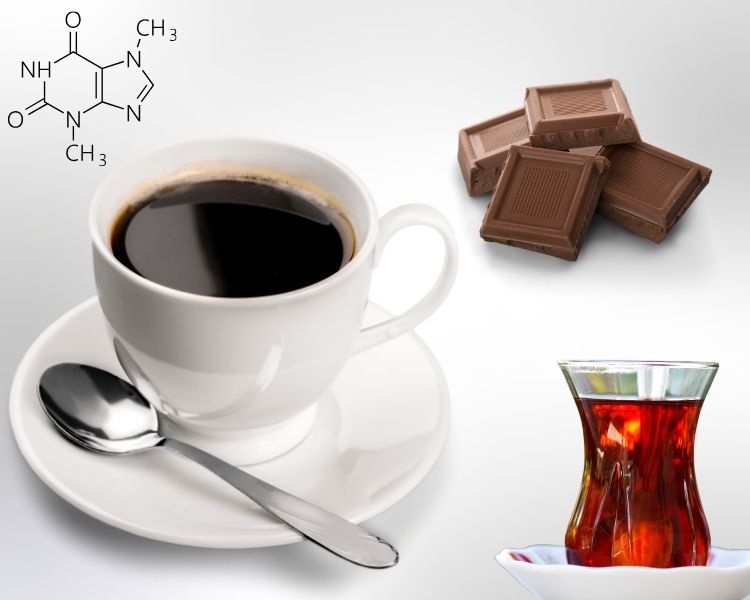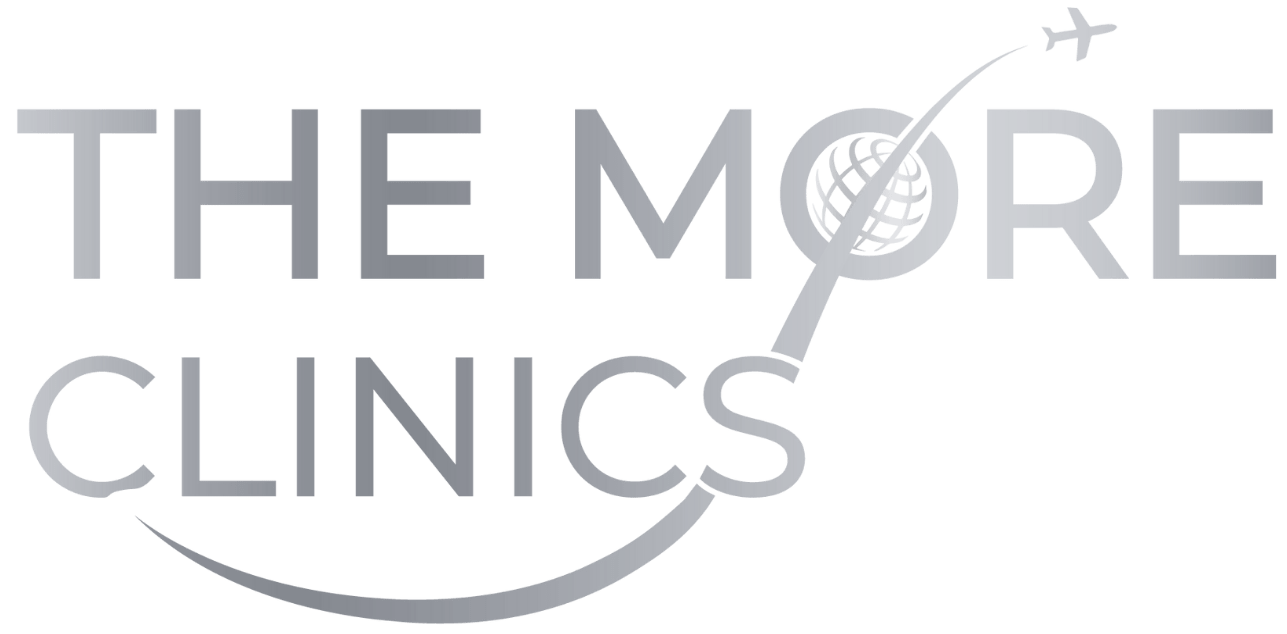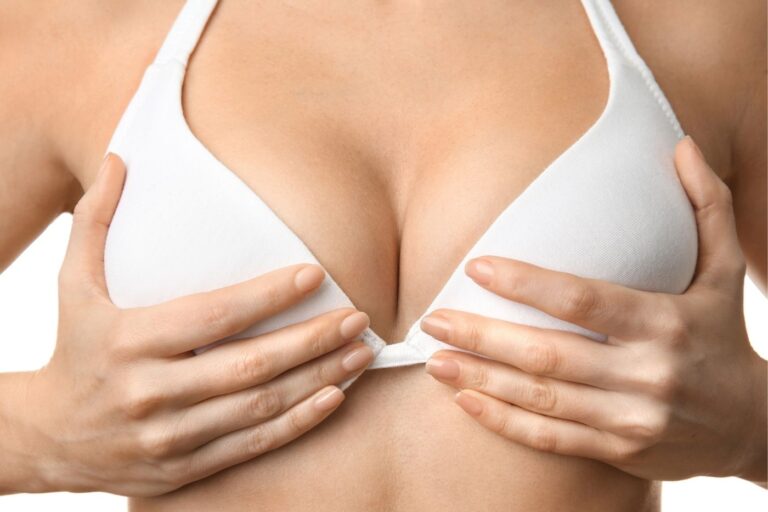How Much Caffeine is Too Much for You?
Do you depend on that initial cup of coffee in the morning, hoping the caffeine will give you a boost? And do you find yourself indulging in more caffeinated beverages throughout the day? Caffeine can be a part of a healthy diet for most individuals, but excessive consumption may pose health risks. Let’s learn more details about how much caffeine is too much for us.

Caffeine, a natural stimulant found in various foods and drinks, is a daily companion for many. However, how much caffeine is considered safe, and when does it become excessive?
Related Post: All about Caffeine.
How Much Daily Caffeine Is Too Much?
Determining your daily caffeine threshold depends on several factors, including age, weight, and individual sensitivity.
Generally, health experts recommend limiting daily caffeine intake to 400 milligrams for most adults, which is approximately the amount found in four 8-ounce cups of brewed coffee. (1)
The American Academy of Pediatrics advises against children (under 12) and adolescents (ages 12 to 18) consuming caffeine and other stimulants. For adolescents, it is recommended to limit their intake to 100 mg per day.
Some certain conditions tend to make people more sensitive to caffeine’s effects. Such as:
- Pregnancy: Pregnant women are often advised to limit their caffeine intake to less than 200 milligrams per day due to potential impacts on fetal development. (Pregnant women, those trying to conceive, or women who are breastfeeding should consult with their healthcare provider for guidance.)
- Heart conditions: People with heart conditions may need to moderate their caffeine intake since it can increase heart rate.
- Sleep disorders: Those with sleep disorders like insomnia might need to limit or avoid caffeine as it can interfere with sleep.
- Anxiety disorders: Individuals with anxiety disorders may find that caffeine exacerbates their symptoms.
- Certain medications: Caffeine can interact with specific drugs, altering their effectiveness. Always consult your healthcare provider for advice based on your personal circumstances.
Unveiling Caffeine Sources
Naturally occurring caffeine can be found in the plants
- Coffee
- Tea
- Chocolate
It is also present in certain flavoring plants, like guarana, as well as alternative teas popular in South America, such as yerba mate (Ilex paraguariensis) and Ilex guayusa.

Additionally, caffeine is sometimes included as an ingredient in various foods and beverages.
- Soft drinks
- Energy drinks
- Some medications and supplements
- Certain weight loss pills and dietary supplements
How to know how much Caffeine is in this?
Packaged foods, including beverages and dietary supplements with caffeine, willingly disclose the caffeine content on their labels.
It is important for consumers to exercise caution when trying a new packaged food with added caffeine if the amount of caffeine is not stated on the label.
Understanding caffeine content involves reading labels and recognizing common caffeine terms, such as milligrams per serving. Additionally, consulting online resources or mobile apps can provide accurate caffeine information for specific products.
As a Reference: TABLO YAPALIM
- 12 ounces (oz) of caffeinated soft drink: 30-40 milligrams (mgs)
- 8 ounces of green or black tea: 30-50 milligrams
- 8 ounces of coffee: 80-100 milligrams
- 8 ounces of decaf coffee: 2-15 milligrams
- 8 ounces of energy drink: 40-250 milligrams
- 1 ounces of dark chocolate: 12 milligrams
Deciphering the “Decaffeinated” Label
While decaffeinated coffee and tea contain significantly less caffeine than their regular counterparts, they are not entirely caffeine-free.
On average, a decaffeinated cup of coffee contains about 2 up to 5 milligrams of caffeine ( in 8 ounce cup), making it a suitable option for those looking to reduce caffeine intake.
Symptoms of Too Much Caffeine
Excessive caffeine intake can lead to various symptoms, including:
- Headaches
- Chest pain
- Irritability
- Trouble sleeping
- Rapid heartbeat
- Anxiety
- Nausea or upset stomach
- Muscle tremors
- Increased thirst
Trouble Sleeping
Caffeine’s stimulating effects can make it difficult to fall asleep and stay asleep.
It is best to limit caffeine consumption throughout the day and abstain from it entirely in the evening hours, preferably several (up to 6) hours before bedtime (2). However, if you are a regular consumer of caffeine, its effects on your sleep won’t be as harmful over time. Your body can adapt to the effects of caffeine and develop a tolerance over time.
Rapid heartbeat
Consuming too much caffeine can lead to a rapid or irregular heartbeat.
Therefore, it is important to understand how your body responds to caffeine as well as limiting daily consumption to keep symptoms at bay.
Chest Pain
Caffeine can cause chest pain in some individuals.
This is usually due to its stimulating effects on the heart and blood vessels, which can cause a temporary spike in blood pressure and lead to chest discomfort.
Headache
Caffeine can act as a mild diuretic, meaning it can cause water and electrolyte loss. This can lead to dehydration which could be the culprit for headaches and other unpleasant side effects.
Caffeine is a common psychostimulant that stimulates the central nervous system. Many people drink coffee or tea with caffeine to get an energy boost in the morning. Caffeine is also used in pain medicine like Excedrin, which contains aspirin, paracetamol, and caffeine. However, excessive consumption of caffeine or caffeine withdrawal can cause headaches.
Irritability
Too much caffeine can increase anxiety and make people feel jittery, moody, or even hostile.
It is important to be aware of your caffeine intake and limit it accordingly. If you notice symptoms like irritability after consuming caffeine, consider cutting back on the amount of caffeinated beverages or products that you consume. Additionally, remember to balance out your consumption
Increased Thirst
Caffeine can act as a mild diuretic, meaning it causes an increase in urine output. This can lead to dehydration and increased thirst.
To prevent dehydration, make sure you are drinking plenty of fluids throughout the day and limit your caffeine intake. Additionally, consider replenishing electrolytes which have been lost due to frequent urination or sweat loss caused
Caffeine Interactions with Medications
It is essential to know how caffeine interacts with medications, as it can potentially alter the effectiveness of some drugs.
Therefore, before taking any medication, speak to your healthcare provider about potential caffeine interactions.
Certain medications such as antidepressants, sedatives, antipsychotics, blood pressure drugs, anticoagulants, Alzheimer’s and Parkinson’s drugs, cancer medications, thyroid medications, antibiotics, NSAIDs, migraine medications, estrogen, and oxandrolone, may potentially interact with caffeine.
Tips to Reduce Caffeine Intake
If you’re looking to reduce your caffeine intake, consider these helpful tips:
- Gradually decrease caffeine intake to avoid withdrawal symptoms.
- Replace caffeinated beverages with herbal teas or caffeine-free alternatives.
- Stay hydrated with water throughout the day to combat caffeine cravings. (3)
- Keep a caffeine journal to track your daily consumption.- Keep in mind that caffeine is not just found in coffee and tea – it can be present in chocolate, energy drinks, and medications.
- Limit overall consumption to no more than 400 milligrams of caffeine per day.
- Eat more foods with nutrients:Foods rich in magnesium, calcium, and B vitamins can help reduce caffeine cravings. –
- Exercise regularly: Regular physical activity can help reduce stress, increase energy levels, and help with better sleep.
- Get enough rest: Make sure to get plenty of quality sleep to reduce caffeine intake over time.
- Consider an alternative form of relaxation: Relaxation techniques such as yoga or meditation can be beneficial for reducing anxiety and cravings for caffeine.
These steps can help you take control of your caffeine intake while avoiding unpleasant side effects. It’s important to remember that everyone’s sensitivity
Last Words from The More Clinics
In conclusion, while caffeine can provide an energy boost, excessive consumption can lead to numerous symptoms such as headaches, chest pain, irritability, sleep disturbances, rapid heartbeat, anxiety, nausea, and increased thirst. Decaffeinated beverages still contain a small amount of caffeine, and caffeine interacts with numerous medications. To reduce caffeine intake, consider gradual reduction, staying hydrated, keeping a caffeine consumption diary, limiting intake to no more than 400 milligrams per day, eating nutrient-rich foods, regular exercise, plenty of rest, and alternative relaxation techniques. If you have concerns about caffeine and its effects on your health, consult with a healthcare professional for personalized guidance.






